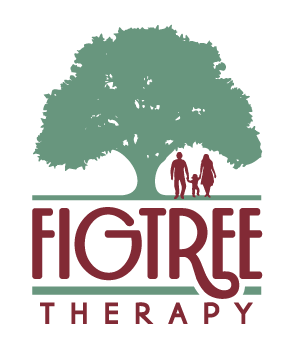Integrating Biblical Principles into Christian Counseling
Maslow’s Hierarchy of Needs is a well-known theory in psychology that outlines the basic human needs that must be met in order for an individual to reach their full potential. However, this theory has been criticized for its lack of consideration for spiritual needs and has been deemed incompatible with a Christian worldview.
From a Christian perspective, self-actualization is not merely about personal growth but about fulfilling God’s purpose for one’s life. It involves aligning one’s desires and ambitions with God’s will and using one’s gifts and talents to serve others and bring glory to Him. By redefining self-actualization in this way, individuals can find true fulfillment and meaning in their lives, rooted in a deeper spiritual connection and purpose.
Understanding Maslow’s Hierarchy of Needs
Maslow’s Hierarchy of Needs is a pyramid-shaped model that outlines five levels of human needs. The theory suggests that individuals must first meet their basic physiological needs, such as food, water, and shelter, before they can move on to fulfilling their safety needs, such as security and stability. Once these needs are met, individuals can then focus on their social needs, such as love and belonging. The fourth level is esteem needs, which include self-esteem and respect from others. The final level is self-actualization, which refers to reaching one’s full potential and achieving personal growth.
Criticisms of Maslow’s Hierarchy
While Maslow’s Hierarchy has been widely accepted and used in various fields, it has also faced criticism for its lack of consideration for spiritual needs. The theory is based on a humanistic perspective, which focuses on the individual and their self-actualization. Jesus emphasizes the importance of remaining connected to God, as apart from Him, our efforts are in vain. This spiritual reliance on God contrasts the individualistic focus of humanism, highlighting the difference in perspectives on self-sufficiency and reliance on a higher power. Humanism subtly creeps in with our self-help mentality.
Rethinking Maslow’s Hierarchy from a Christian Perspective

In order to address the criticisms of Maslow’s Hierarchy, it can be rethought from a Christian perspective using Paul’s life throughout the New Testament.
Physiological Needs
The first level of Maslow’s Hierarchy focuses on meeting basic physiological needs.As infants, our dependency on others for survival underscores the critical importance of having our physiological needs – such as nourishment, warmth, shelter – fulfilled. However, as we mature into adulthood, the dynamics of human needs become more nuanced and multifaceted. Let’s consider the example of Paul, whose experiences and teachings offer profound insight into the complexities of human existence and spiritual fulfillment. Throughout his missionary journeys and letters to various churches, Paul’s life exemplified a profound commitment to his calling, often amidst adverse circumstances and deprivation of basic necessities.
Safety Needs: Trusting in God’s Protection
The second level of Maslow’s Hierarchy is safety needs, which include security and stability. From a Christian perspective, we can find security and stability by trusting in God’s protection. In exploring Paul’s journey, we encounter a profound redefinition of self-actualization- one rooted not in material comforts or external circumstances, but in the alignment with one’s divine purpose and calling. For Paul, living authentically meant embracing adversity, persecution, and discomfort as integral components of his spiritual journey. Despite facing imminent dangers and uncertainties, he remained steadfast in his commitment to spreading the message of love, grace, and redemption.
Social Needs: Love and Belonging
The third level of Maslow’s Hierarchy is social needs, which include love and belonging. Indeed, Paul’s example highlights the transformative power of faith and conviction in shaping one’s sense of purpose and identity. As Christians, we have a new family. Ephesians 2:19-22 provides Christians the security that we are no longer strangers and aliens, but fellow citizens with the saints and members of the household of God. Did you hear that? We are in the family of God.
Esteem Needs: Finding Identity in Christ
The fourth level of Maslow’s Hierarchy is esteem needs, which include self-esteem and respect from others. Secular counseling places such a focus on self where as Christian counseling leads individuals to find their true identity and worth in Christ. This involves understanding that they are loved and valued by God, regardless of their achievements or the opinions of others. Kingdom principles are often the opposite. Jesus tells us that when we lose our life, we find it (Matthew 16:25).
Self-Actualization: Fulfilling God’s Purpose
The final level of Maslow’s Hierarchy is self-actualization, which refers to reaching one’s full potential and achieving personal growth. From a Christian perspective, this can be achieved by fulfilling God’s purpose for one’s life. We have been chosen for this time, this generation. As we have learned, once we recognize our utter dependence on the Lord Jesus, we find ourselves.
Using Maslow’s Hierarchy in Christian Counseling

Maslow’s Hierarchy can be a useful tool in Christian counseling when it is rethought from a Christian perspective. While none of these categories are evil in and of themselves, without Jesus, they promote self-reliance.
Addressing Spiritual Needs
In Christian counseling, it is important that we place the Bible as the final authority on all things. Without addressing the spiritual needs of the client, secular counseling is incomplete. Each of our clients may be at a different place in their journey, they can count on us to provide solid Biblical counseling.
Conclusion
One of the reasons Fig Tree Therapy is dedicated to professional Christian counseling stems from my personal journey, which diverged from Christian doctrine toward New Age ideologies rooted in humanism. Humanism accentuates self-awareness and stability, yet it falls short in determining truth, as the flawed self cannot ascertain truth. Paul provided us with the example of being humbly delivered from deception. He spent the remainder of his life serving others and loving God above all things.
God represents the ultimate truth. As Christian counselors, we aim to guide clients toward their Creator rather than relying solely on self-correction.
Tina Motley, LCSW
